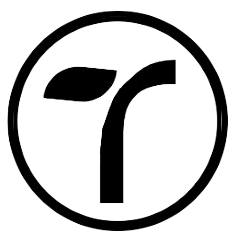- www.etaiyari.com

The Graduate Aptitude Test in Engineering (GATE) is one of India’s most prestigious and competitive examinations. It opens immense opportunities for candidates aiming to excel in academics and professional careers.
GATE is a national-level examination that tests candidates on undergraduate-level subjects in Engineering, Technology, Architecture, and postgraduate subjects in Science, Commerce, and Arts. It serves as a gateway for higher education and recruitment in public sector undertakings (PSUs).
GATE is administered by the GATE Committee, consisting of faculty members from the Indian Institute of Science (IISc) Bangalore and seven Indian Institutes of Technology (IITs) — Bombay, Delhi, Guwahati, Kanpur, Kharagpur, Madras, and Roorkee. The exam is conducted in eight zones across India and is authorized by the Ministry of Human Resource Development (MHRD) and the Department of Education.
GATE is the gateway to top institutions like IITs, NITs, and IIITs for M.Tech, M.E., and Ph.D. programs, ensuring quality education and academic excellence.
Many leading Public Sector Undertakings (PSUs) such as Indian Oil, GAIL, NTPC, and BHEL recruit candidates based on GATE scores, offering prestigious jobs with attractive packages.
Qualifying GATE can secure you financial assistance from the Ministry of Education and other government agencies to pursue higher education.
GATE-qualified candidates are eligible for fellowship programs offered by various government bodies, enhancing career growth and research opportunities.
Subjects: Mechanical, Electrical, Civil, Computer Science, Electronics, Chemical, Aerospace, and more..
Subjects: Physics, Chemistry, Mathematics, Life Sciences, etc.
Subjects: Economics, English, Linguistics, Philosophy, and more.
Duration: The GATE score is valid for three years from the date of the result declaration.
PSUs: Over 50 PSUs use GATE scores for hiring engineering graduates.
Foreign Universities: Some universities in Singapore and Germany recognize GATE scores for their postgraduate programs.
Eligibility Criteria for GATE 2025: Click Here
The GATE exam syllabus varies depending on the subject chosen by the candidate.
General Aptitude (GA): Common to all papers, consisting of 10 questions worth 15 marks.
Core Subject Topics: Specific to each paper, covering the main areas of the chosen discipline.
Engineering Mathematics: Common in most engineering papers, covering mathematical fundamentals used in engineering problem-solving.
Verbal Ability: English grammar, sentence completion, verbal analogies, word groups, instructions, critical reasoning, and verbal deduction.
Numerical Ability: Numerical computation, numerical estimation, numerical reasoning, and data interpretation.
Exam Frequency: GATE is conducted once a year, usually in February. Notifications are generally released in August or September of the previous year.
Organizing Institute: The exam is conducted by one of the IITs or IISc on a rotational basis. GATE 2025 is organized by IIT Roorkee.
Unlimited Attempts: Candidates can appear for GATE as many times as they wish, provided they meet the eligibility criteria each time.
Age Limit: There is no upper age limit for attempting GATE.
Score Validity: A GATE score is valid for three years from the result announcement date.
Usage: The score can be used for postgraduate admissions and PSU recruitment during this period.
Sign up or log in to gain access to previous year questions, curated study materials, and much more!
General Aptitude: 15%
Engineering Mathematics: 13-15% (where applicable)
Core Subject: 70-72%
| Discipline | Core Subject Weightage | Engineering Mathematics Weightage | General Aptitude Weightage |
|---|---|---|---|
| Aerospace Engineering (AE) | 70-72% | 13-15% | 15% |
| Agricultural Engineering (AG) | 70-72% | 13-15% | 15% |
| Architecture and Planning (AR) | 85% | N/A | 15% |
| Biotechnology (BT) | 70-72% | 13-15% | 15% |
| Civil Engineering (CE) | 70-72% | 13-15% | 15% |
| Chemical Engineering (CH) | 70-72% | 13-15% | 15% |
| Computer Science (CS) | 72% | 13% | 15% |
| Electrical Engineering (EE) | 72% | 13% | 15% |
| Electronics & Communication (EC) | 72% | 13% | 15% |
| Mechanical Engineering (ME) | 70-72% | 13-15% | 15% |
| Instrumentation Engineering (IN) | 70-72% | 13-15% | 15% |
| Production and Industrial Engineering (PI) | 70-72% | 13-15% | 15% |
General Aptitude: 15%
Chemistry (Compulsory Section): 25%
Biology/Biochemistry/Botany/Zoology
/Microbiology/Food Tech (Optional Section): 60%
General Aptitude: 15%
Reasoning and Comprehension: 25%
Core Subject (Economics, English, Philosophy, etc.): 60%
General Aptitude: 15%
Environmental Science: 70-72%
Engineering Mathematics: 13-15%
General Aptitude: 15%
Geomatics/Geology: 70-72%
Engineering Mathematics: 13-15%
General Aptitude: 15%
Core Chemistry: 85%